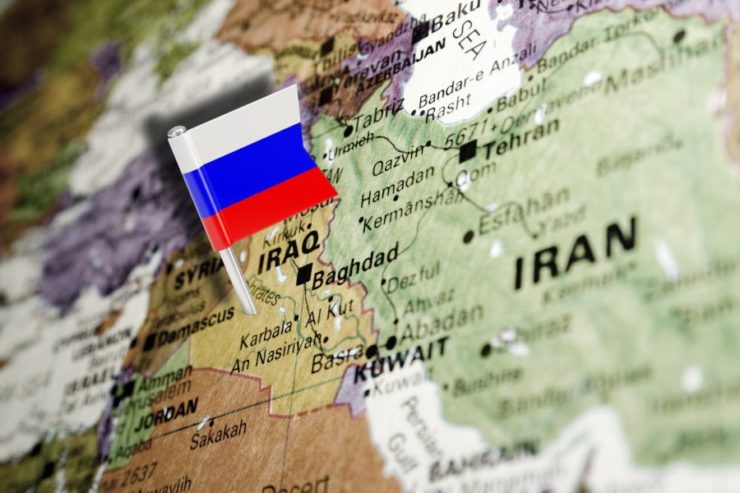
The Israeli strike that killed Hamas leader Ismail Haniyeh pushed the Middle East a lot closer to a wider war than it was before July 31st. Because Haniyeh was killed on Iranian soil during an official visit, Tehran promised military retaliation. The latter sees this as necessary to punish Israel to counterbalance the humiliation it suffered for failing to protect an official guest. But, thanks to Russia’s intervention and proactive diplomacy, clouds of a wider war have begun to disappear. Russia can play this role because of the special ties it has with Iran and the balance Moscow and Jerusalem have been able to maintain since the Syrian war. Still, Russian military support for Iran is crucial, as opposed to US support for Israel, to prevent the balance of power from tilting too much in Israel’s favour. Yet, maintaining this balance is a tough task.
The Aftermath of the Strike
Why was Israel able to kill Haniyeh? The key reason for this remains the support, both military and diplomatic, from the US. Jerusalem understands that a regional move by Iran threatening its interests will see US countermoves. Since the July 31st strike, Washington has already announced sending a squadron of its fighter jets and an aircraft carrier. Washington, as always, responded to Israel’s irresponsible behaviour with militarization. Defence Minister Austin has reportedly ordered the USS Abraham Lincoln aircraft carrier strike group to the Middle East to replace the USS Theodore Roosevelt carrier strike group, which is in the Gulf of Oman but scheduled to come home later this summer. That decision suggests the Pentagon has decided to keep a carrier consistently in the region as a deterrent against Iran at least until next year.
Moscow, on the contrary, followed an altogether different path. Although it could have chosen to arm Iran with advanced weapon systems, including the S-400 air defence system, Putin pushed Iran to follow a restrained approach. In a letter written by Putin to Iran’s Supreme Leader, the Russian president advised Iran against resorting to indiscriminate use of military force while he attempts to mediate between the two hostile nations. Tehran paid attention to Putin’s message, but it has also asked for more military support from Russia to avoid such strikes in the future.
While Russia has yet to officially confirm any sale of the S-400 system, Moscow’s outreach to Tehran seems to have been successful in preventing widespread hostilities. Counterfactually speaking then, had Russia not intervened in a timely manner, a direct war between Israel and Tehran might have broken out, since the Iranian Supreme Leader was reported to have given such orders to the Iranian military forces, including the Revolutionary Guards.
Russia Maintaining Balance
There is a concern highlighted in Western media reports that were Moscow to deliver advanced weapon systems to Iran, this will jeopardize Russia’s ties with Israel. For over a year or so, Israel has resisted US efforts to supply Patriot missile batteries to Ukraine against Russia. The matter, as it stands, is still under negotiations. Reports highlight that Israel could retaliate against Moscow, if the latter provides the S-400 to Tehran, by supplying Patriot batteries to Ukraine.
How can Russia, in such a scenario, maintain balance to avoid the situation from changing to its disadvantage either in Ukraine and/or the Middle East? Clearly, most reports in the US media tend to ignore how Russia maintained a balance between Iran and Israel in Syria. Even though Russia and Iran were/are allies against the ISIS (and US military forces), Russia still allowed Israel to independently operate against the Iran-backed militias in Syria. It was Russia’s balance that continued to allow both Iran and Israel to protect their interests in Syria, preventing any major escalation that could have consumed the Syrian regime. Although Israel has expressed support for Ukraine, it has been careful not to alienate Russia, which controls much of Syrian airspace and currently allows Israel to operate there against Iranian groups. However, were Russia to withdraw that support for Israel, it could allow Iran to open a four-front war on Israel involving Iran, Hezbollah, the Houthis, and the Syria-based militias. Israel surely does not want this – a calculation that allows Russian diplomacy to stay relevant and productive and maintain a balance.
Still, because of the threat of a wider war and the imperative of keeping Washington happy to ensure sufficient supplies, Israel might agree to supply Patriot batteries to Ukraine. Such a situation is not unimaginable, for Israel most certainly prefers its ties with Washington much more than the value it places on its ties with Ukraine. Were this to happen, Moscow would be justified in supplying any necessary advanced weapon systems to Tehran.
But a tit-for-tat action could destabilize the region on the whole, which is something that most regional and extra-regional states do not wish. Most Arab states will be (indirectly) embroiled in the war. Chinese interests, too, will be very badly damaged. Israel itself will pay a heavy price. While the Biden government is willing to risk it, a probable Trump presidency will bring more uncertainty to the region. What might work for all states is for them to put pressure on Israel to end its war on the people of Palestine and negotiate a way out of this seemingly permanent conflict
Salman Rafi Sheikh, research analyst of International Relations and Pakistan’s foreign and domestic affairs, exclusively for the online magazine “New Eastern Outlook”
